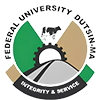SUKUK BOND AND DEVELOPMENT: A VIEW FROM ECONOMIC LENS
Keywords:
SUKUK BOND , DEVELOPMENT , ECONOMIC LENSAbstract
This paper critically explores the economic implications of Sukuk—Shariah-compliant financial instruments also known as Islamic bonds—as tools for sustainable development. Unlike conventional bonds that generate fixed interest (riba), Sukuk are asset-backed and structured on profit-and-loss sharing, ensuring compliance with Islamic principles while fostering real-sector investments. The global Sukuk market has grown significantly, surpassing USD 800 billion by 2023, with increasing adoption in both Muslim and non-Muslim-majority countries such as Malaysia, Saudi Arabia, the United Kingdom, and Nigeria. Using a mixed-method approach, this study integrates theoretical literature, empirical data, and case studies from countries with active Sukuk markets. It evaluates Sukuk’s role in mobilizing capital for infrastructure, enhancing financial inclusion, and promoting ethical investing. Evidence from Malaysia and GCC states reveals that Sukuk finance has positively contributed to GDP growth, employment generation, and industrial diversification. In Nigeria, sovereign Sukuk have funded critical road infrastructure across geopolitical zones, showcasing their impact on national development. The paper also highlights major challenges: regulatory fragmentation, inconsistent Shariah interpretations, underdeveloped secondary markets, and macroeconomic vulnerabilities such as currency risks and inflation. These risks, if unaddressed, could undermine Sukuk’s scalability and investor confidence. Policy recommendations include harmonizing legal frameworks, enhancing market infrastructure, promoting public–private partnerships, and leveraging fintech to improve transparency and access. In conclusion, Sukuk represent a transformative financial tool that aligns profitability with ethical and developmental goals. With strategic reforms and international collaboration, they can play a central role in financing infrastructure, advancing the Sustainable Development Goals (SDGs), and fostering inclusive economic growth—especially in emerging economies and Islamic finance markets.






